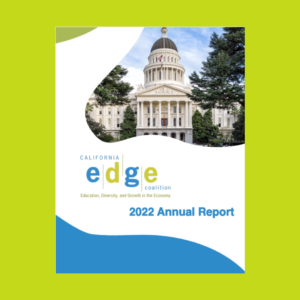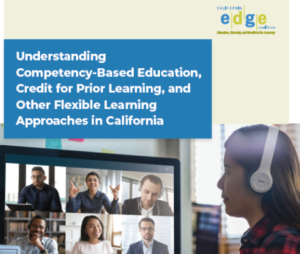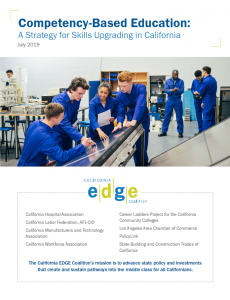
2022 Annual Report
Dear Friends, California has a staggering number of unfilled good jobs and an incredible pool of talent living in poverty or below a living wage.
EDGE priorities for 2016 focus on creating a funding stream for CTE programs, greater financial support for Cal Grant C students, implementing high impact practices in adult education and basic skills, and more.
EDGE releases its workforce agenda for 2016. To learn more, download the full text of the article here.

Dear Friends, California has a staggering number of unfilled good jobs and an incredible pool of talent living in poverty or below a living wage.

EDGE recently partnered with the California Association of Alcohol and Drug Program Executives (CAADPE) to publish a new report, Identifying Barriers to Employment After Substance

Dear Friend, I’m excited to bring you the first annual State of the California EDGE Coalition Report intended to provide you with an overview of our successes

Postsecondary credential attainment is a primary path to economic and social mobility. However, more than 5.5 million Californian adults have some college but no degree and are no longer enrolled. For millions more who are juggling personal and work responsibilities, fitting college into an already hectic life seems impossible.

. A new policy brief released by the California EDGE Coalition examines the ways in which other states are now successfully employing competency-based approaches to teaching and learning which allow students to move flexibly – and often much more quickly – through an educational program that is designed to make sure they know and can do what is expected of graduates.

Many Californians face significant financial, educational and navigational barriers to completing the education and training they need to succeed in today’s labor market. Read our latest publication, Making Certificate and Degree Completion More Affordable and Accessible for Low-Wage Workers